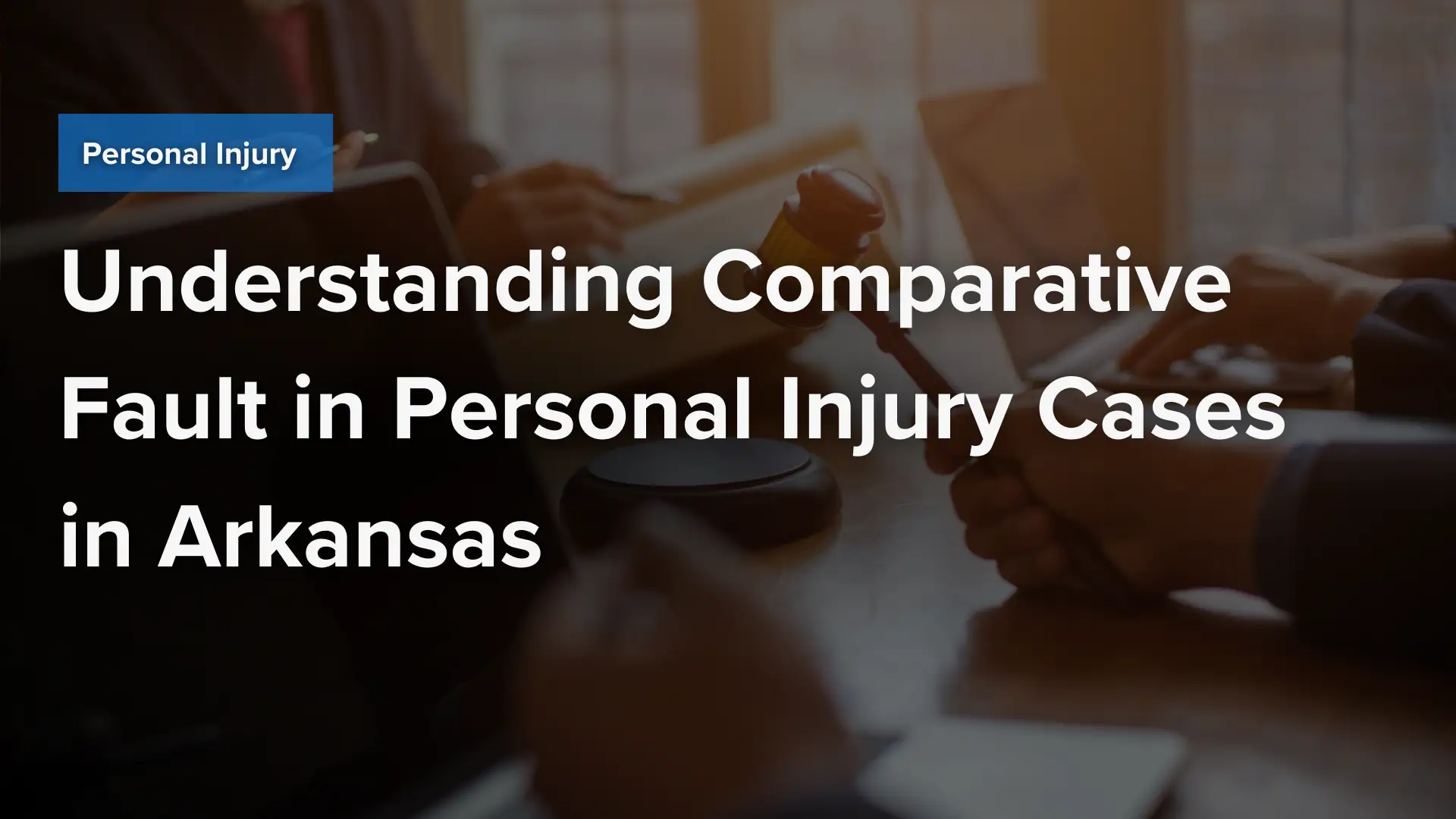Posted on Friday, August 1st, 2025 at 9:00 am

Are you worried that your role in an accident might keep you from recovering fair compensation? That’s not necessarily true in Arkansas, thanks to the state’s comparative fault system. The key is proving that the other party bears more fault for the accident than you, which is where understanding comparative fault rules becomes essential to protecting your right to compensation.
That’s not something you should try to do alone. A Fort Smith personal injury attorney can gather evidence supporting your claim, negotiate with the insurance company, and build a compelling case.
What Is Comparative Fault in Arkansas?
There are many Arkansas personal injury cases where the injured party played a minor role in the accident. In these cases, comparative fault rules determine who is responsible for the accident and how much they owe. Instead of putting all the responsibility on one person or organization, the law looks at how much each person contributed to the accident.
Different states follow different systems when it comes to shared fault. The three models that other states use are:
- Pure Comparative Negligence – Pure comparative negligence states allow injured people to recover money no matter their level of responsibility for an accident, provided the injured person isn’t solely liable. For example, if someone is 90 percent responsible for an accident, they could still recover 10 percent of their losses.
- Modified Comparative Negligence – States with modified comparative negligence systems let people recover some compensation for an accident if their level of fault is below certain thresholds. Depending on the state, the threshold is either 50 or 51 percent. If the injured party’s level of fault is below their state’s threshold, the court will reduce their compensation according to their degree of negligence. For instance, someone 15 percent liable for an accident would lose 15 percent of their compensation.
- Pure Contributory Negligence – This is the strictest form of comparative fault laws. Pure contributory negligence states don’t let people recover compensation if they contributed to an accident in any way.
Fortunately, Arkansas follows a modified comparative fault rule. (See Section 16-64-122 of the Arkansas Code.) Under Arkansas law, you can recover compensation only if you are less at fault than the other party. That means you must be less than 50 percent responsible for the accident.
How Fault Is Determined in Arkansas Injury Cases
Fault in Arkansas personal injury cases is based on negligence. In plain terms, whoever’s careless actions caused the accident is responsible for the resulting injuries, pain and suffering, and property damage.
In comparative fault cases, courts look at the evidence to determine each party’s level of responsibility for an accident. Some common types of evidence in these cases include:
- Police Reports – Police officers documenting an accident scene may record traffic violations they notice and provide an initial opinion on fault.
- Witness Statements – People who saw the accident can describe what happened and confirm or challenge your account.
- Photographs and Videos – Pictures of the scene or footage from surveillance cameras can show how the accident occurred and who caused it.
- Medical Records – These documents link your injuries to the accident and can show if your injuries match your side of the story.
- Accident Reconstruction Reports – Experts can use science and math to recreate how the crash happened, helping to clarify the actions of everyone involved.
- Cell Phone Records – In car accident claims, these records can show if a driver was distracted (such as texting or making calls) before the accident.
Common Personal Injury Cases Where Fault Is Shared

Some situations where multiple people may share fault for an accident include:
- Car Accidents Involving Lane Changes – A driver may make an unsafe lane change, but the injured driver might have been speeding or distracted.
- Workplace Injuries – An employer may have failed to provide safety gear, while the employee may not have followed safety protocols.
- Bicycle or Pedestrian Accidents – A driver may have failed to yield, while the injured cyclist or pedestrian may have crossed outside a crosswalk or disobeyed signals.
- Boating Accidents – The boat operator may have acted recklessly, while the injured party may have been standing or acting carelessly on board.
- Construction Site Injuries – A contractor may have ignored safety regulations, while the injured worker may have misused tools or failed to report hazardous gas at the job site.
Contact Our Arkansas Injury Lawyers for Help
The Arkansas personal injury lawyers at McCutchen Napurano - The Law Firm have many years of combined experience and a proven record of success for our clients. No matter what caused the accident that injured you, we’ll work to find evidence to minimize your level of fault and help you recover the money you need. Our team is here to help you understand your rights and take the first step toward securing the necessary benefits. Call (479) 783-0036 now or complete our contact form for a free consultation.




